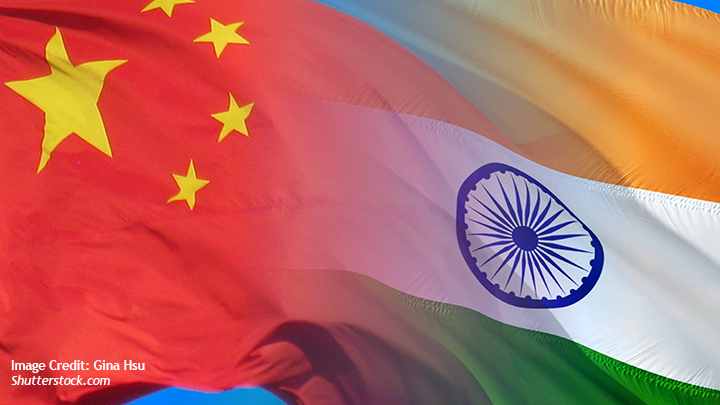Will India and China Escape the Thucydides’ Trap?

Jagannath P. Panda
Introduction:
About 10 days after the U.S. House of Representatives’ Speaker Nancy Pelosi’s visit to Taiwan, India finally broke its studied silence over both the trip and China’s consequent unprecedented military exercises and live-fire air and sea drills that encircled Taiwan, heralding the onset of the Fourth Taiwan Strait Crisis. On August 12, while answering questions on these recent developments in the Taiwan Strait as part of a weekly media briefing at the Ministry of External Affairs, India’s Official Spokesperson Arindam Bagchi, without naming any parties, urged exercising restraint and avoiding unilateral actions to change the status quo, so as to de-escalate tensions and maintain peace and stability in the region.
Even as no loud official proclamation was expected, the supposedly non-descript nature of India’s statement was in keeping with the prevalent regional provocation-averse ethos vis-à-vis China. Even the Association of Southeast Asian Nations (ASEAN) foreign ministers’ statement on the cross-strait development, while warning about the “unpredictable consequences” of “open conflicts” and “miscalculations” between major powers, reiterated each member’s support for its respective “One China” policy. However, India’s short, yet stern, statement was marked by its refusal to abide by Beijing’s call to reiterate the “One China” policy, simply because India’s “relevant” policies are “well-known and consistent.”
Related Publications
-
Not Drawing a Parallel. Ukraine and Taiwan: An Indian Perspective
Russia’s war against Ukraine has not only had economic, diplomatic, and geopolitical repercussions, but also exaggerated the fear of accelerated conflicts in the Indo-Pacific, a region with several unresolved conflicts […]
-
Needed, a Framework to Protect Undersea Cables
In the data-driven world we live in, submarine cables are the arteries that connect nation-states and their people in literally every human activity, including trade, commerce, entertainment, and social interactions. […]
-
India-Japan-Philippines: A Strategic Maritime Trilateral or More?
Regional states like India, Japan, and the Philippines have been seeking cooperative solutions with other middle powers that can both counter the Chinese influence and fulfill other economic as well […]
-
The Limitations of India and Russia’s Transactional Relationship
Since Russia’s unprovoked invasion of Ukraine in February 2022, it might seem as though ties between India and Russia have strengthened. While much of the West isolated Russia, India-Russia energy […]
-
ISDP Annual Report 2023
ISDP’s Annual Report for the year 2023. We look back on 2023, a year in which tensions and conflicts captured the strategic space in ISDP’s focus areas, making headlines around […]




